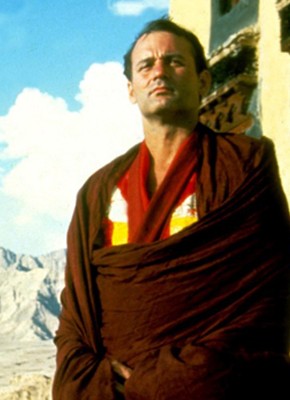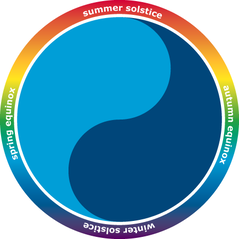 (By Paolo Propoto, LAc) A few weeks ago I watched a documentary called Bill Murray Stories. A filmmaker travels the globe to find out the truth about urban legends surrounding Bill Murray. These stories revolve around him doing out-of-the-ordinary activities with common folk, like showing up at a frat party and washing their dishes, crashing a wedding, or working as a cashier at a gas station/bait shop in the middle of nowhere. These seemingly spontaneous acts are great examples of moving ourselves in ways that feel uncomfortable and out of routine, and brought to mind an important Daoist concept known as ziran 自然, which can be translated as "spontaneity" or "naturalness." According to Daoist philosophy, the struggle to maintain ziran in one's life plays a role in the origin of pathology and disease. It's like a horse on a farm, saddled and fenced, versus the horse able to roam freely according to her nature. The longer she is subject to artificial restraints, the harder it is for her to rediscover her spontaneity were she allowed to roam free. If her nutritional, physical, mental and spiritual needs are met she may live a good ol’ life on the farm, but if she is locked up all day in solitude or overworked, pathology may ensue since these conditions are so far removed from her state of ziran. If we follow this pathology back to its beginning--the horse no longer being free to roam--we will find what is called in Chinese medicine “Qi stagnation.” Knowingly or not, the family you were born into, the location and time period, the experiences as a child and throughout life shape your thoughts, create your actions, and become habits and lifestyle patterns, which in turn affect your mental and physical health.
1 Comment
 In classical Chinese medicine, our bodies are not seen as separate from the phenomena of nature. The transitions between seasons tend to be the most unstable, vulnerable times for human beings, when annoying symptoms and remitted conditions are more likely to flare up or be slow to recover. In particular, the transitions from Yang-to-Yin (Spring/Summer to Fall/Winter) and Yin-to-Yang (Fall/Winter to Spring/Summer) are difficult times for our health, and therefore a great time to harmonize with an acupuncture tune-up. |
AuthorWrite something about yourself. No need to be fancy, just an overview. Archives
June 2024
Categories |
 RSS Feed
RSS Feed